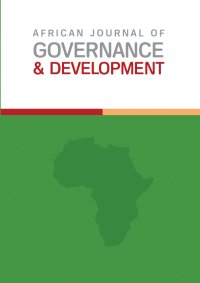Urban Health and Community Resilience in the Context of Lagos State's Development Agenda
Main Article Content
Abstract
Two-thirds of the global population will live in cities by 2050. Already, over half of the world’s population lives in urban areas.In line with Goal 11 of the Sustainable Development Goals, these urban areas must be made sustainable. Resilient urban development prioritizes urban residents’ physical and social environments, not just for their present but also for their future. We asked, “to what extent do health and resilience inform the stated development agenda of the Lagos metropolis?” Additionally, our work serves as a case study for planners and health officials to critically evaluate key planning documents, with the goal of aligning them with the Sustainable Development Goals.In conducting this assessment, we reviewed Lagos State’s archives. These documents were compared against a conceptual framework for urban health and resilience derived from the socio-ecological model, the Rockefeller Foundation’s resilience framework, and the social determinants of health theory. The analysis was further informed by qualitative research conducted with civil society and civil servants working within the intersections of health,
resilience, and Lagos State’s present environment.Lagos State Government’s development agenda encompasses health and resilience focus areas such as housing, health, safety and transportation. However, insufficient attention was placed on the processes of governance which are critical for effective and equitable delivery of these determinants of health. Such poorly addressed factors include the need to emphasize, equitable processes, to incentivise cooperation within and across sectors, and to open lines of participation with citizens, especially those in the informal sector. Additionally, reports from surveillance systems were aggregated and thus unable to reveal or adequately monitor inequities. Without such information, health and resilience cannot be delivered especially to the most marginalized.We, therefore, recommend a heightened focus on the processes of governance, investment in surveillance systems to target pockets of intra-urban inequity and deprivation, and resource allocation and capacity building in order to move the focus of urban health beyond health centres to urban living conditions.
Article Details

This work is licensed under a Creative Commons Attribution-NonCommercial-NoDerivatives 4.0 International License.
